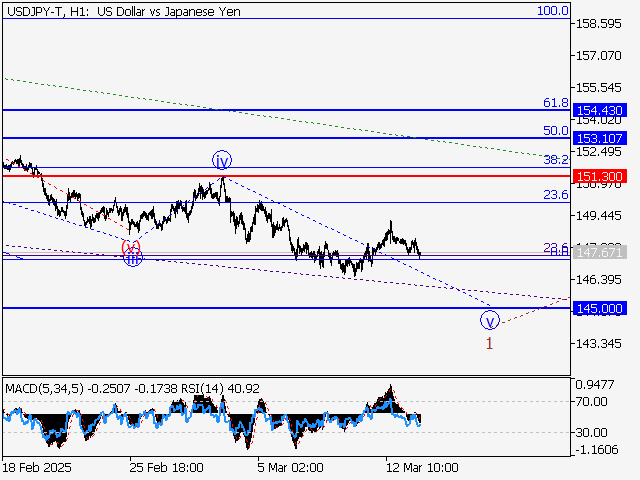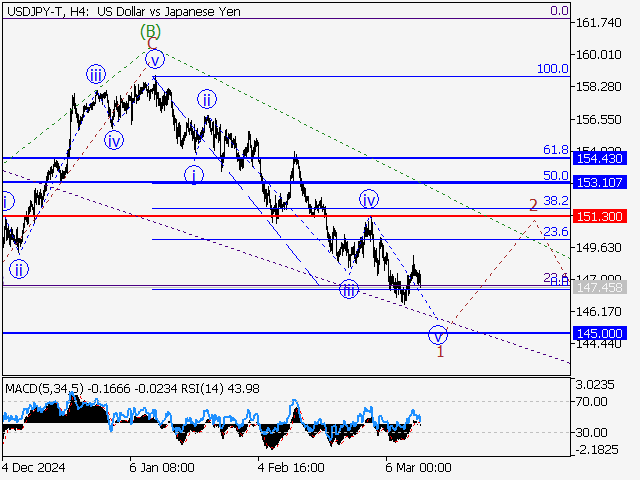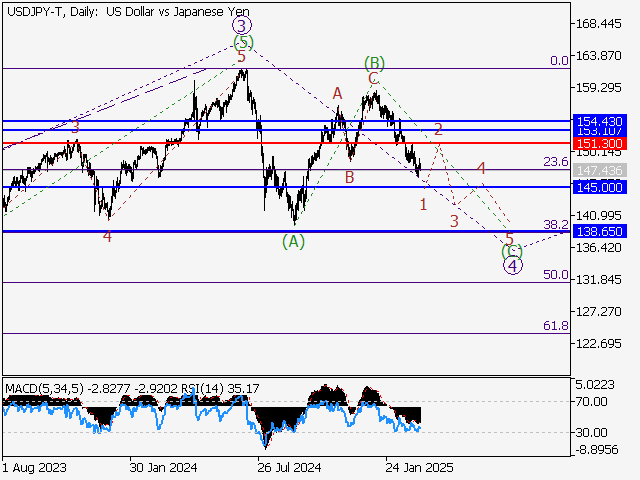
The article covers the following subjects:
Major Takeaways
- Main scenario: Consider short positions from corrections below the level of 151.30 with a target of 145.00 – 138.65. A sell signal: the level of 151.30 is broken to the downside. Stop Loss: above 152.00, Take Profit: 145.00 – 138.65.
- Alternative scenario: Breakout and consolidation above the level of 151.30 will allow the pair to continue rising to the levels of 153.10 – 154.43. A buy signal: the level of 151.30 is broken to the upside. Stop Loss: below 150.50, Take Profit: 153.10 – 154.43.
Main Scenario
Consider short positions from corrections below the level of 151.30 with a target of 145.00 – 138.65.
Alternative Scenario
Breakout and consolidation above the level of 151.30 will allow the pair to continue rising to the levels of 153.10 – 154.43.
Analysis
The daily time frame shows that the ascending wave of larger degree 3 is presumably formed, and the bearish correction continues developing as the fourth wave 4, with wave (А) of 4 completed as its part. On the H4 chart, correction appears to have finished developing as wave (В) of 4, and wave (C) of 4 is forming. Apparently, the first wave of smaller degree 1 of (C) is forming on the H1 chart, with wave v of 1 continuing developing as its part. If the presumption is correct, USD/JPY will continue to drop to the levels of 145.00 – 138.65. The level of 151.30 is critical in this scenario as a breakout will enable the pair to continue rising to the levels of 153.10 – 154.43.
This forecast is based on the Elliott Wave Theory. When developing trading strategies, it is essential to consider fundamental factors, as the market situation can change at any time.
Price chart of USDJPY in real time mode
The content of this article reflects the author’s opinion and does not necessarily reflect the official position of LiteFinance broker. The material published on this page is provided for informational purposes only and should not be considered as the provision of investment advice for the purposes of Directive 2014/65/EU.
According to copyright law, this article is considered intellectual property, which includes a prohibition on copying and distributing it without consent.
{{value}} ( {{count}} {{title}} )
This post is originally published on LITEFINANCE.






